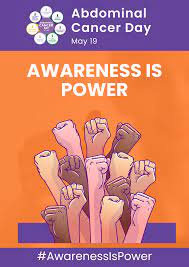What Is Abdominal Cancer a formidable adversary, encompassing various malignancies that affect the abdomen's organs. This article aims to shed light on this condition, from its types and symptoms to diagnosis and available treatments.
Types of Abdominal Cancer
Abdominal cancer isn't a singular entity but a spectrum of cancers affecting different abdominal organs. These include but aren't limited to:
- Stomach Cancer: This malignancy develops in the stomach lining and can spread to nearby organs.
- Liver Cancer: Originating in the liver cells, this cancer may stem from various causes, including hepatitis or alcohol abuse.
- Pancreatic Cancer: Often diagnosed in advanced stages, pancreatic cancer affects the pancreas, causing serious health implications.
- Colorectal Cancer: Primarily affecting the colon or rectum, this cancer can start as polyps and develop into malignancies.
Recognizing the Signs
Identifying abdominal cancer can be challenging, as symptoms often mimic other common ailments. However, some indicative signs include:
- Persistent abdominal pain or discomfort
- Unexplained weight loss
- Changes in bowel habits or stool consistency
- Bloating or swelling in the abdomen
- Fatigue and unexplained weakness
Diagnosis and Treatment
Timely diagnosis is crucial for effective treatment. Physicians typically use a combination of tests, including imaging scans, biopsies, and blood tests, to confirm abdominal cancer. Treatment varies based on the cancer type, stage, and individual health factors.
- Surgery: Removing cancerous tissue is a common approach, especially in localized cases.
- Chemotherapy and Radiation: These treatments aim to shrink tumors and prevent cancer from spreading or recurring.
- Targeted Therapy: This approach targets specific vulnerabilities in cancer cells, offering tailored treatment.
Living with Abdominal Cancer
Coping with abdominal cancer involves comprehensive care beyond medical treatments. Patients often benefit from support groups, dietary adjustments, and lifestyle modifications to enhance their quality of life.
Transitioning to a healthier diet rich in nutrients while avoiding carcinogenic substances can significantly contribute to well-being. Additionally, seeking emotional support through therapy or support groups can alleviate the mental and emotional burden of the diagnosis.
Conclusion
Abdominal cancer encompasses various malignancies affecting vital organs in the abdomen. Early detection through understanding symptoms, timely medical intervention, and holistic care approaches play pivotal roles in managing this condition and improving patient outcomes.


No comments yet